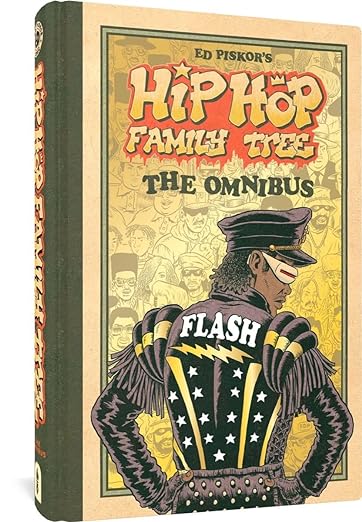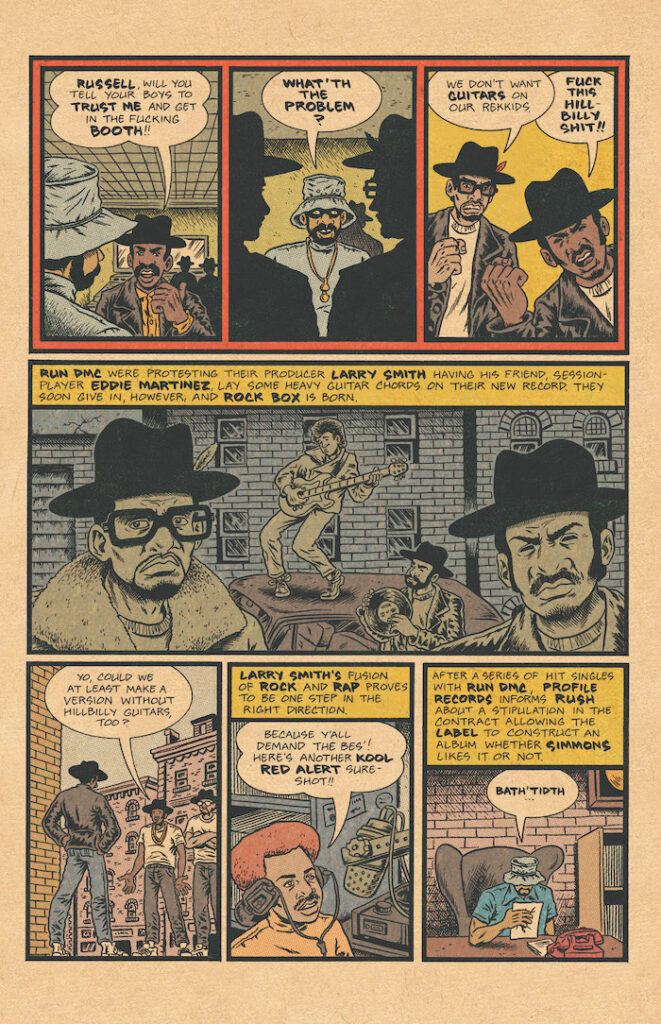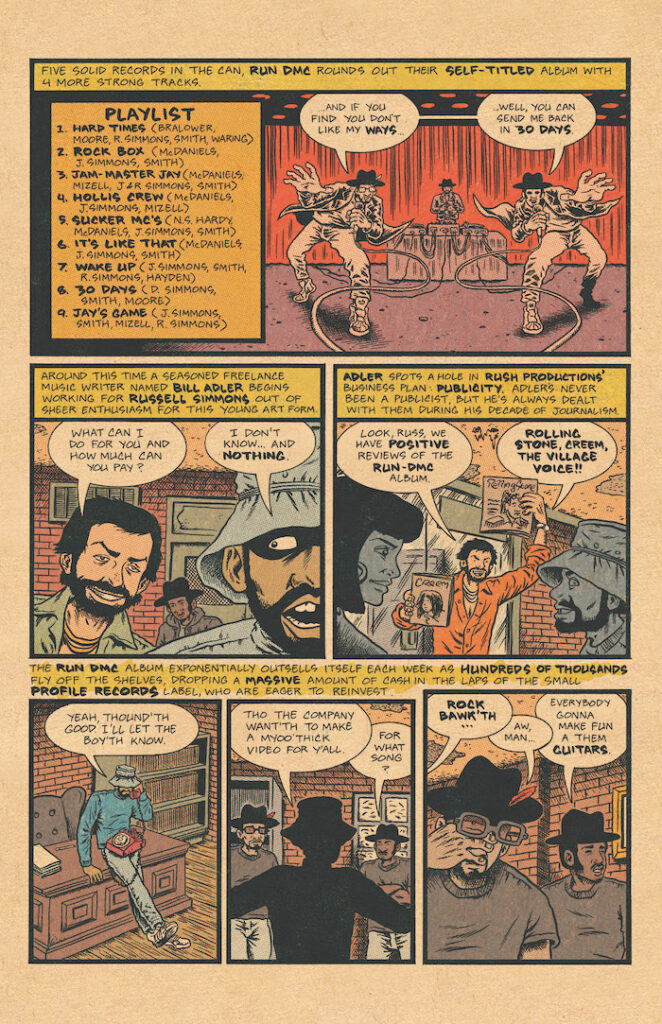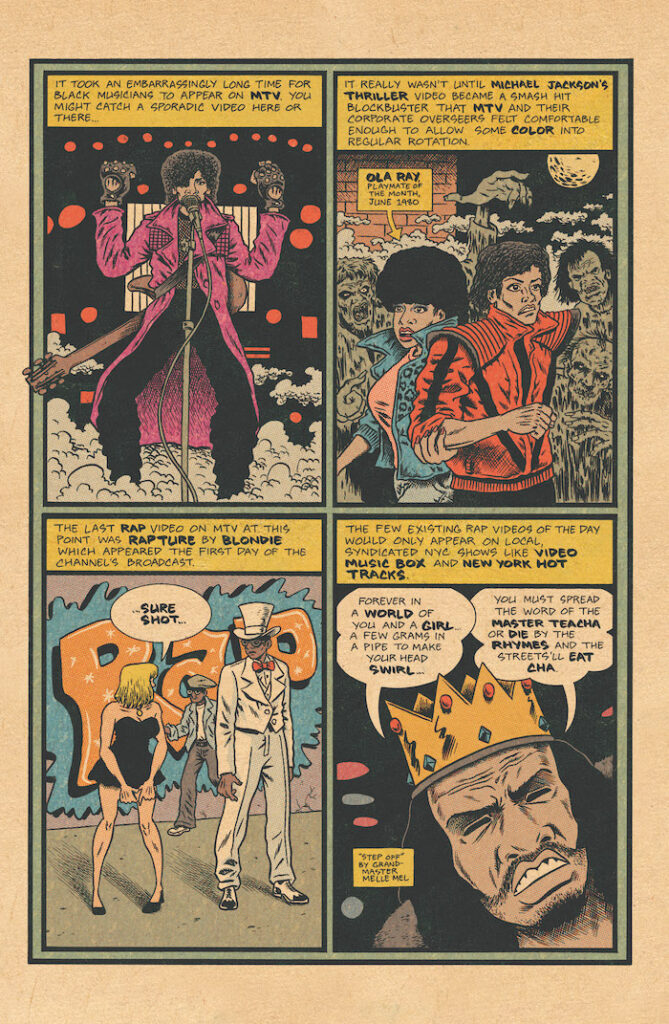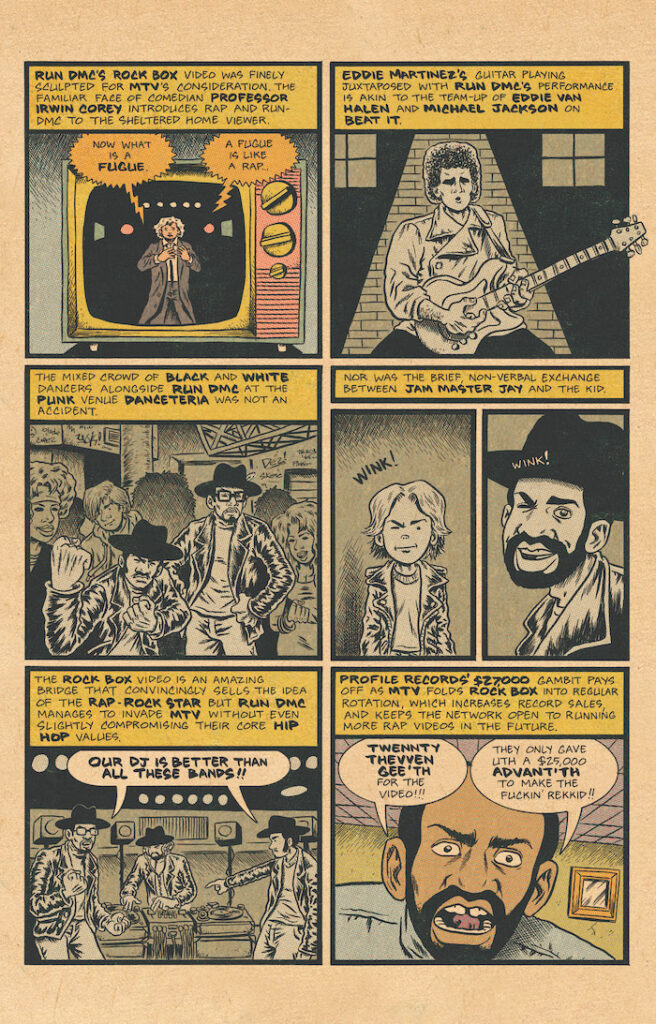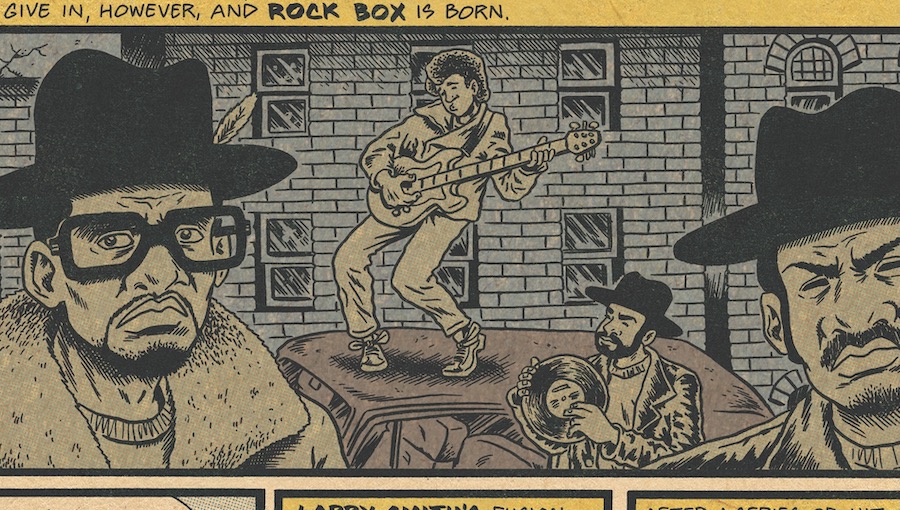The following is an interview with New York Times bestselling creator Ed Piskor regarding the upcoming release of his Eisner Award-winning series, Hip Hop Family Tree, collected as a hardcover omnibus through Fantagraphics. In this interview, Fanbase Press Editor-in-Chief Barbra Dillon chats with Piskor about his experiences in revisiting the series, his outlook on the current landscape of hip hop at its 50th anniversary, and more!
Barbra Dillon, Fanbase Press Editor-in-Chief: As you look ahead to the collection of Hip Hop Family Tree, what has been your experience in revisiting your work on the series?
Ed Piskor: It’s been great. I can remember exactly where I was and what happened on the days I drew most of those pages, so it acts as an inadvertent, personal scrapbook. Reviewing this old work has a weird effect. I never feel like I’d be able to do such a thing again, but then I’m 75 pages into another project with no end in sight of final page count, so it seems to be my modus operandi: always working and never feeling like I could create the last books I’ve made.
BD: The omnibus will feature over 140 pages of additional material, from a comprehensive cover gallery to all-new annotations throughout the book. How would you describe your creative process in collaborating with Fantagraphics to compile this new project?
EP: Gotta thank Eric Reynolds and Justin Allan-Spencer [who] have been great collaborators. We’ve been pushing the design, doing several passes of proofs to make sure everything looks perfect, and the book wouldn’t be what it is without them. We’ve just put a bunch of ideas into play, given ourselves a due date, and did completely everything possible before the final files were wrestled away from us.
BD: This book is quite timely, as it is being released in conjunction with the 50th anniversary of hip hop. What do you feel makes the genre such a mainstay in music history?
EP: Rap music and Hip Hop culture has always been driven by the youth and has always been contemporary to its times, so it’s slowly morphed month to month, year to year, and decade to decade. This has never happened for any other genre of music, which all have their days in the [sun] and then the genres become nostalgia acts.
BD: In looking at the current landscape of hip hop and what lies ahead, are there any new directions for the genre that have been most interesting for you to consider or explore?
EP: No. My kind of rap music was killed by the lawyers and the music industry by making the clearances of samples a viable business in and of itself. Only the biggest acts are able to afford to make music that’s anything close to golden age rap music.
BD: What makes Fantagraphics the perfect home for the collected edition of Hip Hop Family Tree?
EP: We’ve been in business for a decade and it’s been good. At the start of our relationship, they said “yes” to everything I wanted and they’ve always been honest. That goes a long way.
BD: Given that we are entering the Halloween season, I would be remiss if I didn’t ask about your work on the critically acclaimed horror series, Red Room (also from Fantagraphics). Both “The Antisocial Network” and “Trigger Warnings” story arcs delved deep into splatterpunk shock and awe, but underneath that was incredible character development and world building. Are there new avenues in the horror genre that you enjoyed tackling with Red Room or that you would like to explore in future projects?
EP: I think I accomplished everything I needed to with Red Room. I always wanted to make a gritty comic with the duotone medium. I cut my teeth on the Crow and Faust comics. Red Room was my addition to that genre.
